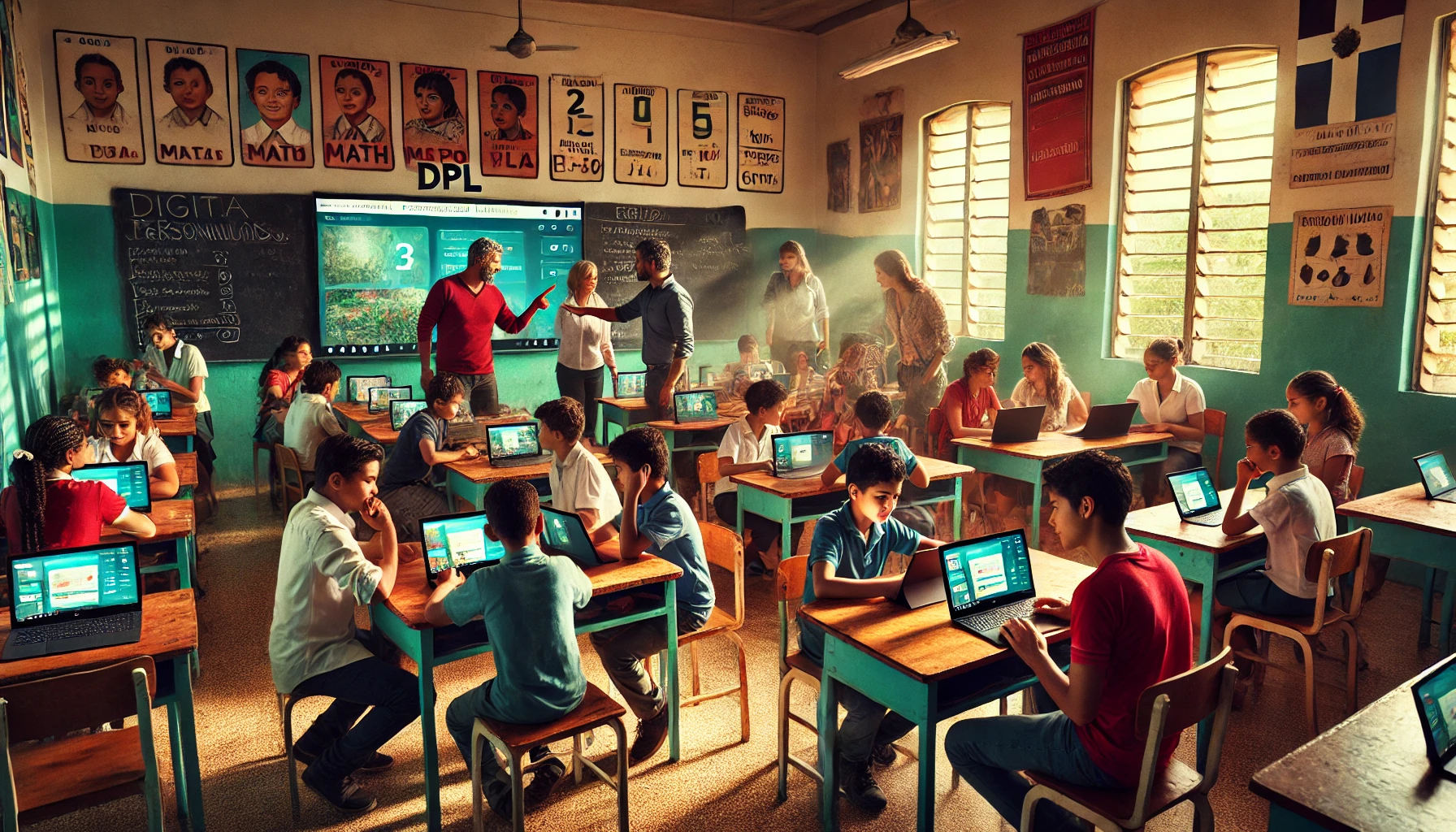Unlocking Student Potential: The Impact of Digital Personalized Learning in the Dominican Republic
The World Bank and EdTech Hub's report on the Programate project in the Dominican Republic highlights the challenges and successes of implementing a Digital Personalized Learning platform, showing its potential to improve student outcomes despite technological and timing obstacles. The study emphasizes the importance of teacher support, timely implementation, and adequate resources for effective DPL program execution in public schools.

The World Bank and EdTech Hub recently released a report which explores the implementation of the Programate project in the Dominican Republic. This project, developed by the Ministry of Education in the Dominican Republic (MINERD) in collaboration with the World Bank, sought to enhance secondary students' math skills through the use of a Digital Personalized Learning (DPL) platform known as ALEKS. The report provides an in-depth analysis of the experiences and perceptions of various stakeholders, including students, parents, teachers, and education personnel, who were involved in the project across multiple cohorts from 2019 to 2022. The study aims to fill a gap in the existing literature on the implementation of DPL technologies in low- and middle-income countries (LMICs), offering valuable insights into both the successes and challenges of such initiatives.
Stakeholder Engagement and Motivation
One of the key findings of the study is that engagement with the DPL platform varied significantly across different schools and among individual students. This variation was influenced by several factors, including the way the project was introduced to students and the level of support provided by teachers. In some schools, the DPL platform was integrated into the regular curriculum, with students required to use it during class time or as part of their homework assignments. In other cases, students were encouraged to use the platform independently, outside of school hours. The report notes that students who were extrinsically motivated, whether by the prospect of earning higher grades, competition with peers, or encouragement from teachers and parents, tended to use the platform more frequently and effectively. On the other hand, some students were intrinsically motivated to engage with the platform to improve their math skills, particularly in preparation for national standardized exams.
The Critical Role of Teachers
Teachers played a crucial role in the implementation of the DPL platform. They were responsible for introducing the platform to students, monitoring their progress, and providing the necessary pedagogical and technical support. However, the success of the implementation was often hindered by several challenges. One of the most significant challenges was the inadequate technological infrastructure in schools, particularly in rural areas. Many schools lacked reliable internet connectivity and sufficient devices, such as computers or tablets, which limited students' ability to access the platform. Even when devices were available, they were often outdated or required maintenance, further complicating the implementation process. The report also highlights the disparities between urban and rural schools, with rural schools facing greater difficulties in providing students with the resources needed to effectively use the DPL platform.
Timing Challenges in Implementation
Another major challenge identified in the report was the timing of the project’s implementation. The project was often introduced late in the academic year, which left teachers and students with limited time to familiarize themselves with the platform. This created additional pressure for teachers, who were already burdened with their regular teaching responsibilities. The timing also conflicted with other school activities and final exams, making it difficult for teachers to integrate the DPL platform into their lesson plans effectively. Despite these challenges, the report notes that the DPL platform had a positive impact on student learning outcomes, particularly for students who were lagging behind their peers. Data from the DPL platform showed that students who used the platform regularly demonstrated significant improvements in their mastery of math topics. These students also performed better on national standardized exams compared to their peers who did not use the platform as frequently. The platform's ability to provide personalized learning experiences, tailored to each student’s individual needs and learning pace, was particularly beneficial for those who were struggling with math.
Recommendations for Future DPL Programs
The report concludes with several recommendations for improving the implementation of DPL programs in public schools, particularly in LMICs like the Dominican Republic. It emphasizes the importance of co-designing DPL programs with teachers and other education personnel to ensure that the content and structure of the program are relevant and aligned with school conditions. Ongoing support for teachers is also crucial, as they play a key role in facilitating the implementation and supporting student learning. The report suggests that governments should invest in improving technological infrastructure in schools, ensuring that students have access to reliable internet connectivity and up-to-date devices. Additionally, the report calls for more research on DPL implementation in public schools, particularly in LMICs, to better understand the conditions under which these programs can be most effective.
The Programate project in the Dominican Republic offers valuable lessons on the implementation of DPL platforms in public schools. While the project faced several challenges, including inadequate technological infrastructure and limited time for implementation, it also demonstrated the potential of DPL platforms to improve student learning outcomes, particularly for those who are most in need of support. The insights gained from this study can help inform the design and implementation of future DPL programs, both in the Dominican Republic and in other LMICs, to ensure that all students have the opportunity to benefit from personalized learning experiences.
- READ MORE ON:
- World Bank
- Digital Personalized Learning
- ALEKS
- DPL technologies
- DPL platform
- FIRST PUBLISHED IN:
- Devdiscourse
ALSO READ
World Bank's Historic Replenishment Secures Future for 78 Nations
World Bank Approves $250M for Türkiye’s Public Health Emergency Preparedness
UPDATE 2-World Bank wins $100 bln replenishment of fund for poorest countries
World Bank Approves $40M Financing to Strengthen Bhutan’s Climate and Disaster Resilience
Digital Transformation Powers Growth in Services Sector Across East Asia and Pacific: World Bank Report










